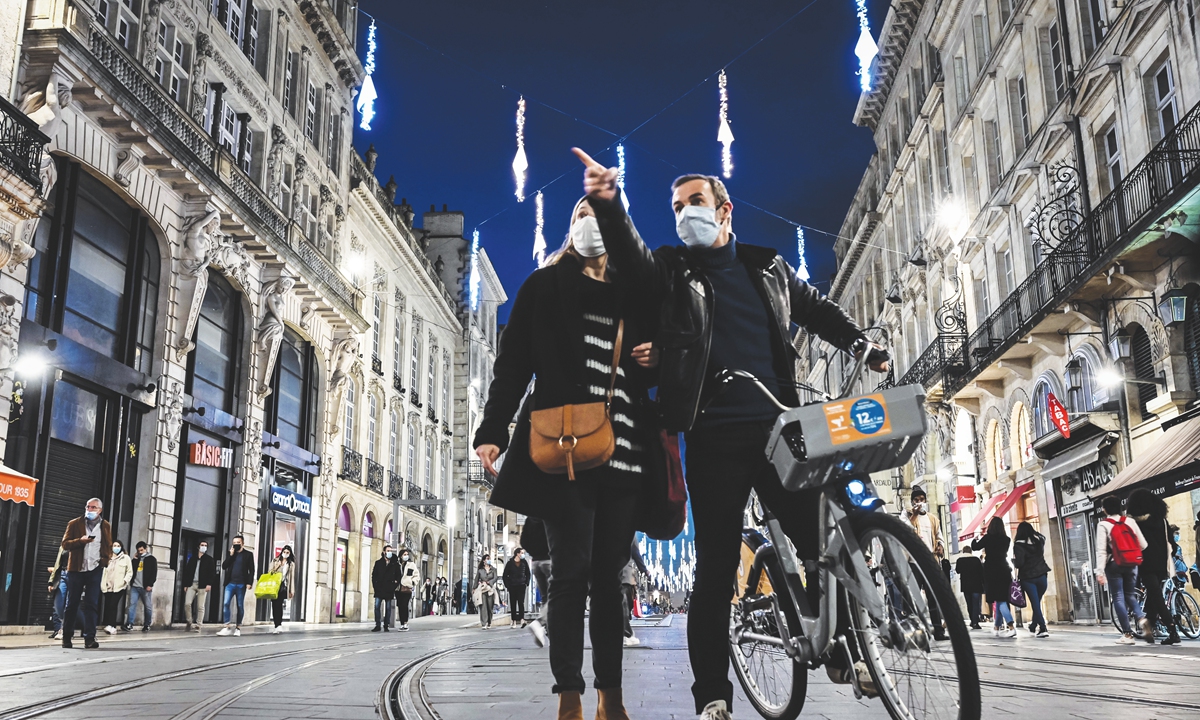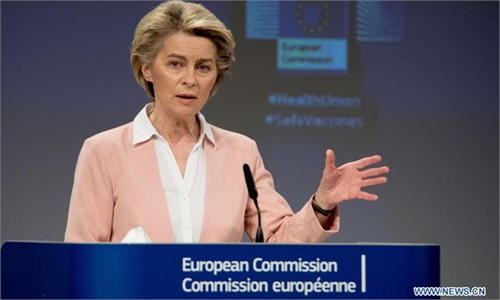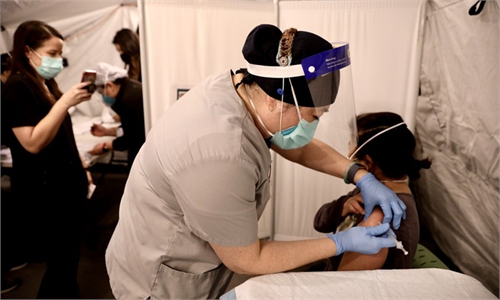EU's plan similar to 'vaccine passport' for US travelers unlikely to be followed by China soon

A man and a woman stand under Christmas decorations as people do shopping in Bordeaux, France on November 28, 2020. Photo: AFP
The European Union (EU) is planning to allow US residents who have been vaccinated against COVID-19 to travel freely in Europe during the summer, a scheme similar to a vaccine passport. Chinese experts believe that the implementation of this plan in the EU will not encounter many obstacles but China is unlikely to follow this plan soon.
In an interview with the New York Times on Sunday, the President of the European Commission, Ursula von der Leyen, said that visitors from the US who have been fully vaccinated against COVID-19 will be allowed to visit EU countries over the summer. The move comes more than one year after the EU shut down nonessential travel from most countries to limit the spread of the coronavirus.
According to von der Leyen, all 27 member states will accept unconditionally all those who are vaccinated with vaccines that are approved by the European Medicines Agency.
All three vaccines being used in the US, Moderna, Pfizer/BioNTech and Johnson & Johnson, have been approved by the agency.
She did not offer a timeline on when exactly the EU plans to lift the travel restrictions or the details on what kind of epidemic prevention and control measures will be taken for these vaccinated visitors. Von der Leyen's comment shows the resolution to lift travel restrictions to the EU, one of the world's biggest economies.
Experts expressed confidence on the feasibility of this plan. "The vaccine passport is designed to recognize the reliability and protective power of the vaccines received by the residents of the two countries and regions" Tao Lina, a medical expert on vaccines from Shanghai, told the Global Times on Monday, adding that "from this point of view, it should not be difficult for the EU and the US to reach mutual recognition between each other."
Mutual recognition and implementation details between the EU and the US may be reached soon but experts noted that China is not likely to join in immediately.
A number of EU countries and the US are currently struggling with infections while China has managed to control the outbreak of the virus, Tao said. He noted that China cannot assume the risks that might be associated with mass movement of people across borders.
"If the EU and the US agree on such a system, China can observe and learn from their preventive and control measures for vaccinated visitors from other countries, which will help China to gradually restore cross-border movement of people and even launch a vaccine passport system in the future," Tao noted.
The World Health Organization (WHO) had long held reservations over vaccine passports, based on uncertainty over the protection rate of the vaccines and possible discrimination against people who are not yet vaccinated.
China has also been open about the introduction of a vaccine passport and has worked with partner countries to do more research on its implementation, experts told Global Times.
China is willing to discuss mutual recognition of COVID-19 inoculations with other countries to help resume and secure safe and orderly people-to-people exchanges, Wang Yi, China's State Councilor and Foreign Minister, mentioned in March.



